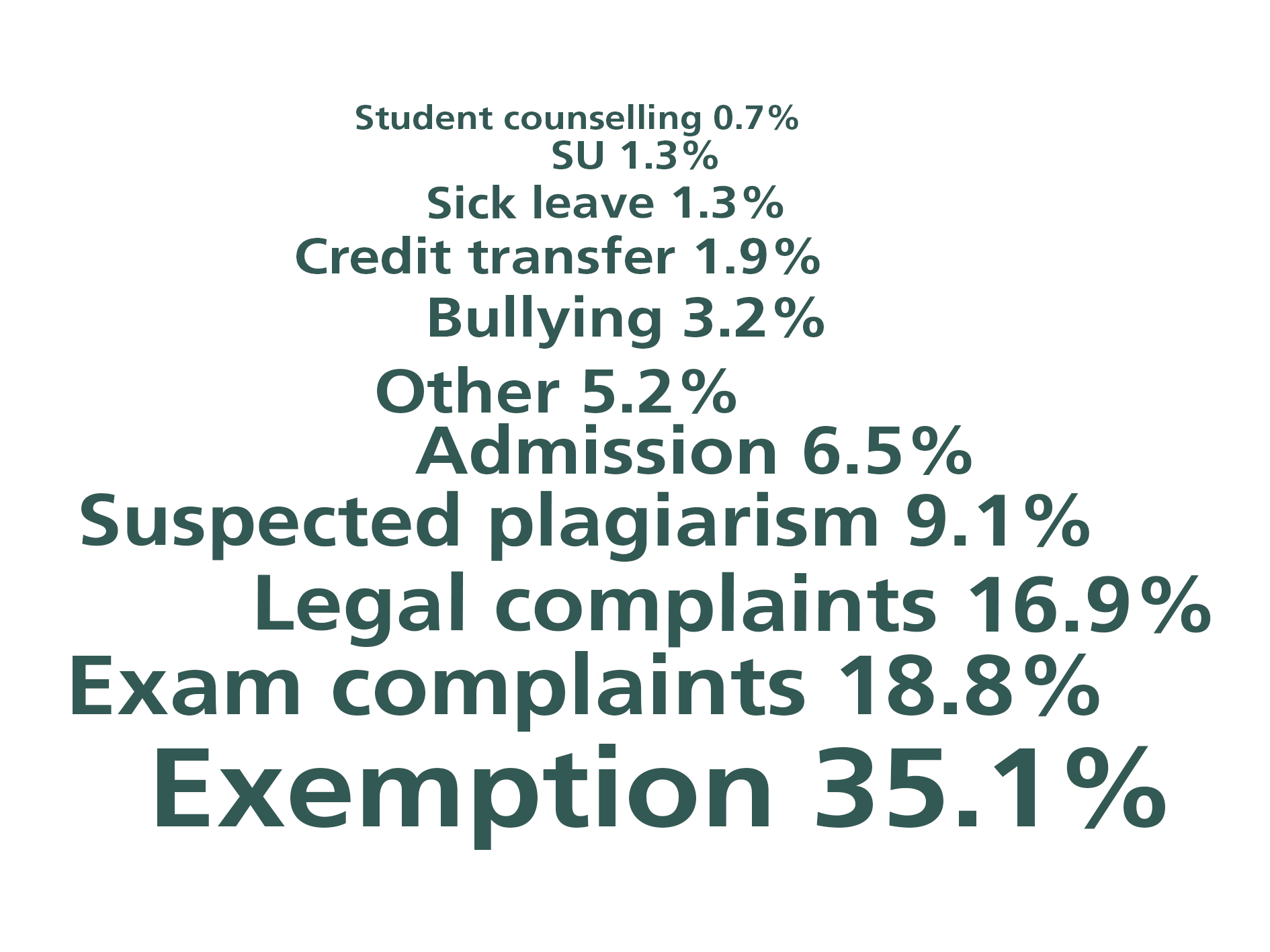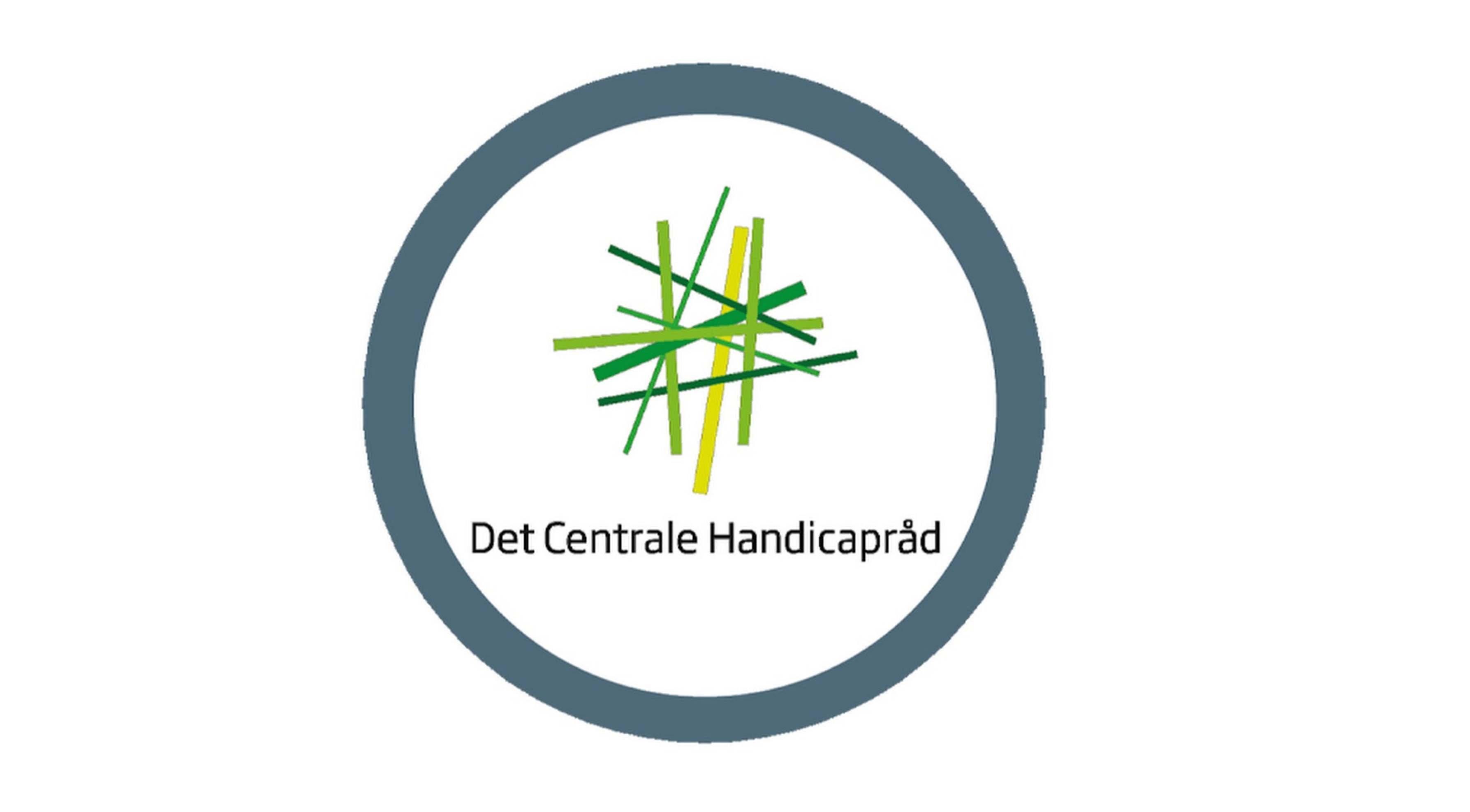Student Ambassador's Newsletter Q3 2021
The Student Ambassador’s quarterly newsletter keeps you updated on how the Student Ambassador and many others are working to improve students’ legal position and develop dialogue and understanding between students and the University.
Counselling needs in Q3
In Q3, the Student Ambassador received 154 enquiries.
This time, over a third of the enquiries were from students who wanted guidance in relation to applying for exemption.
In addition, a number of the enquiries were from students who wanted to complain about an exam, most often because they disagreed with the assessment. The vast majority of enquiries about appeals against the assessment of an exam are related to written exams.
Approximately 17 percent of the enquiries from Q3 are about legal complaints. Most of these enquiries are from students whose application for exemption has been rejected and who are looking for guidance on how to appeal against the decision.

UCPH course to write clearer decisions and emails to students
Would you like new inspiration for how to communicate even more clearly with students regarding decisions or via email? Are you often unsure about how you can express yourself in the clearest way? Have you experienced a dialogue with a student come to a deadlock? Or do you just want to become even better at avoiding misunderstandings when you communicate in writing?
Then this half-day course is for you!
Based on our insights at the Student Ambassador’s, we have been provided assistance to offer a UCPH course on how to write clearer decisions and emails to students on 8 November.
This year’s course includes presentations by Gitte Henchel Madsen, Head of Study and Career Guidance, SCIENCE Study Administration, and Pernille Steensbech Lemée, Fokus Kommunikation. During the course, you can discuss and practise your use of the communication tools presented.
Register for the free course here (in Danish).
Hearing at Christiansborg on study conditions for students with disabilities
On 18 August, the Danish Disability Council held a hearing in the Danish Parliament about the conditions for students with disabilities in higher education.
At the hearing, Chair of the Danish Disability Council and Vice President at Novo Nordisk Liselotte Hyveled presented a study from COWI showing, among other things, that helping 6,800 more people with disabilities get a job will lead to socio-economic gains of DKK 13.9 billion.
The participants in the hearing supported the recommendations that the Danish Disability Council had set as a framework for the day:
- To make general rules that set a framework for exemptions in higher education institutions, so that people with disabilities can do an internship at reduced hours and, for example, extend their internship period instead.
- To make it possible, for example, to do an internship without losing one’s disability supplement.
- It should be examined how the rules for compensatory arrangements can also apply to internship or paid work during one’s studies.

Recommendations from Universities Denmark on exemptions based on functional impairments
On 27 August, Universities Denmark published five recommendations for the universities’ work with exemptions based on functional impairment. In the press release, Universities Denmark wrote that the recommendations must now be put into practice to make it easier for students to apply for exemption based on functional impairment.
The five recommendations are as follows:
- Earlier clarification of needs and possibilities for exemption
- Fewer entrances to information and guidance
- Clear guidelines for applications and requirements for documentation
- Reduce the need for applying for exemption
- Collaboration on common definitions
Read Universities Denmark’s elaboration of each recommendation here (in Danish only)
Study start at HUM and SUND
In the first week of September, Student Ambassador Bo Gad Køhlert was invited to do a study start presentation for some of the new bachelor students at HUM and SUND.
In the presentation, he introduced the student ambassador function and did a quiz with the students about students’ rights and duties as well as the framework for what the student ambassador, among others, can help with. He also gave all new students a good piece of advice: Watch your digital notes when you write your exam papers!
The advice is based on enquiries from the last few years. At the Student Ambassador’s, we see an increase in enquiries from students who are suspected of plagiarism, because they, when they write their exam paper, forget that a bit of the text in their notes is not something they have formulated themselves or that they have already used it in a previous assignment.

